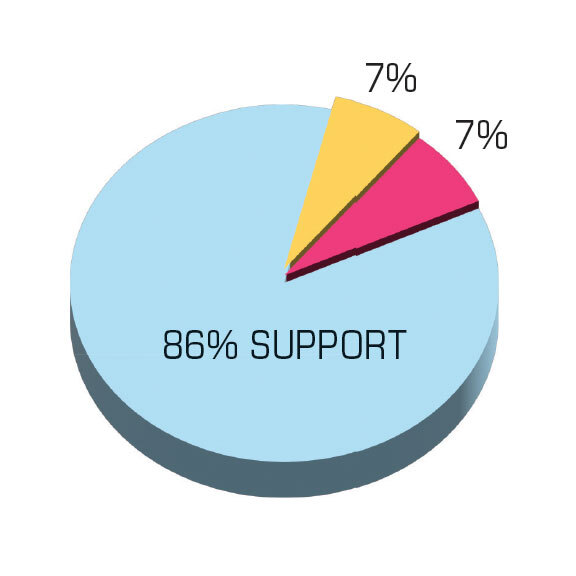In November 2024, Florida voters will face a critical decision regarding Amendment 3, which aims to legalize recreational marijuana for adults aged 21 and over.
Amendment 3 proposes legalizing marijuana for personal use while establishing a regulatory framework for its sale through licensed dispensaries. This approach is modeled after alcohol distribution laws, ensuring that cannabis products meet specific safety and quality standards. The amendment requires a 60% majority for approval, a common threshold for significant changes to state law.
Benefits of Legalization
- Economic Growth: Supporters of the amendment argue that legalizing marijuana could significantly enhance Florida's economy. States that have legalized cannabis have seen substantial tax revenues and job creation. Florida could potentially generate millions in tax revenue that could be allocated to public services like education and healthcare.
- Public Health and Safety: A regulated cannabis market would provide consumers access to safer products. With legal dispensaries, marijuana can be tested for potency and purity, minimizing the health risks associated with unregulated black-market products. This regulation would also contribute to a decrease in the stigma surrounding marijuana use, promoting responsible consumption.
- Reduction in Criminal Activity: Legalization is expected to decrease the crime rates associated with the illegal drug trade. By offering a legal alternative, advocates believe the black market will diminish, reducing drug-related crimes and allowing law enforcement to focus on more pressing issues. Furthermore, legalization could lead to fewer arrests and convictions for marijuana-related offenses, which disproportionately affect marginalized communities.
- Social Justice: Amendment 3 is viewed as a step towards addressing past injustices linked to marijuana prohibition. Legalizing cannabis can help rectify the impact of previous convictions on individuals’ lives, particularly for those from communities that have faced disproportionate scrutiny and enforcement.
Survey
To assess the sentiments of the FAU community regarding Amendment 3, OutFAU surveyed current and former students, faculty, and staff. The results highlighted a strong consensus in favor of legalization:
- Support for Legalization: 86% of respondents indicated their support for Amendment 3, showcasing a substantial shift in attitudes toward marijuana use within the university community. Additionally, 7% of those surveyed remain undecided, reflecting a slight but notable contingent still weighing the implications of legalization.
- Usage Statistics: The survey revealed that 64% of respondents have previously used marijuana. This statistic underscores the prevalence of cannabis use within the community and may reflect changing perceptions of its acceptability and safety.
- Concerns from the Community: Despite the overwhelming support, there are concerns regarding the implications of legalization. One anonymous survey participant voiced a common apprehension: "The main concern I have with the marijuana amendment is that it does not clarify where someone can use it recreationally. I am pro-marijuana at home, but I don't want to be around it or smell it while I'm at the nature parks or simply out and about."
The upcoming vote is likely to significantly reshape Florida's approach to cannabis. As voters prepare for the election, ongoing discussions and education about Amendment 3 will be crucial in shaping public perception and determining its ultimate fate.
Sign up to receive the OutFAU newsletter here







